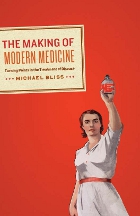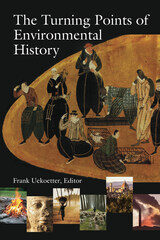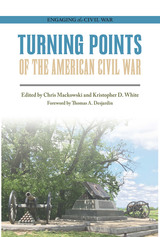
At the dawn of the twenty-first century, we have become accustomed to medical breakthroughs and conditioned to assume that, regardless of illnesses, doctors almost certainly will be able to help—not just by diagnosing us and alleviating our pain, but by actually treating or even curing diseases, and significantly improving our lives.
For most of human history, however, that was far from the case, as veteran medical historian Michael Bliss explains in The Making of Modern Medicine. Focusing on a few key moments in the transformation of medical care, Bliss reveals the way that new discoveries and new approaches led doctors and patients alike to discard fatalism and their traditional religious acceptance of suffering in favor of a new faith in health care and in the capacity of doctors to treat disease. He takes readers in his account to three turning points—a devastating smallpox outbreak in Montreal in 1885, the founding of the Johns Hopkins Hospital and Medical School, and the discovery of insulin—and recounts the lives of three crucial figures—researcher Frederick Banting, surgeon Harvey Cushing, and physician William Osler—turning medical history into a fascinating story of dedication and discovery.
Compact and compelling, this searching history vividly depicts and explains the emergence of modern medicine—and, in a provocative epilogue, outlines the paradoxes and confusions underlying our contemporary understanding of disease, death, and life itself.

Turning Points in Modern Times focuses on events after 1917: the rise of Nazism on the Right and authoritarianism on the Left. Bracher provides an incisive framework for understanding the great ideological confrontation of this century--democracy versus totalitarianism in the forms of fascism, Nazism, and communism. His analysis of the outcomes underscores the significance and power of democratic values and governments.
The doyen of German political history, Karl Dietrich Bracher extends the argument against dictatorship that runs through his life's work, offers a blueprint for dealing with the recent past of the communist East German State (DDR), looks at the true facts of the Stasi collaboration, and challenges misperceptions of Hitler, Stalin, and others. He demonstrates the kinship between fascism and communism, considers Weimar and liberalism, assesses the legacy of Nazism, and outlines the ethos of democracy. In all this Bracher exposes the twentieth-century threats to the democratic state so that they can never again subvert representative government.
A founder of the new history of Germany, which considers the larger context for Hitler and illuminates events through the theories of social science and the values of liberalism and democracy, Bracher writes in the tradition of Acton, Burckhardt, Croce, and Dahrendorf. This is a vital history lesson for our turbulent times, when once more democracy is on the march after a twilight century.

John McNeill introduces the collection with an overarching account of the history of human environmental impact. Other contributors explore the use and abuse of the earth’s land in the development of agriculture, commercial forestry, and in the battle against desertification in arid and semi-arid regions. Cities, which first appeared some 5,500 years ago, have posed their own unique environmental challenges, including dilemmas of solid waste disposal, sewerage, disease, pollution, and sustainable food and water supplies.
The rise of nation-states brought environmental legislation, which often meant “selling off” natural resources through eminent domain. Perhaps the most damaging environmental event in history resulted from a “perfect storm” of effects: cheap fossil fuels (especially petroleum) and the rapid rise of personal incomes during the 1950s brought an exponential increase in energy consumption and unforseen levels of greenhouse gasses to the earth’s atmosphere. By the 1970s, the deterioration of air, land, and water due to industrialization, population growth, and consumerism led to the birth of the environmental and ecological movements.
Overall, the volume points to the ability and responsibility of humans to reverse the course of detrimental trends and to achieve environmental sustainability for existing and future populations.

READERS
Browse our collection.
PUBLISHERS
See BiblioVault's publisher services.
STUDENT SERVICES
Files for college accessibility offices.
UChicago Accessibility Resources
home | accessibility | search | about | contact us
BiblioVault ® 2001 - 2024
The University of Chicago Press









